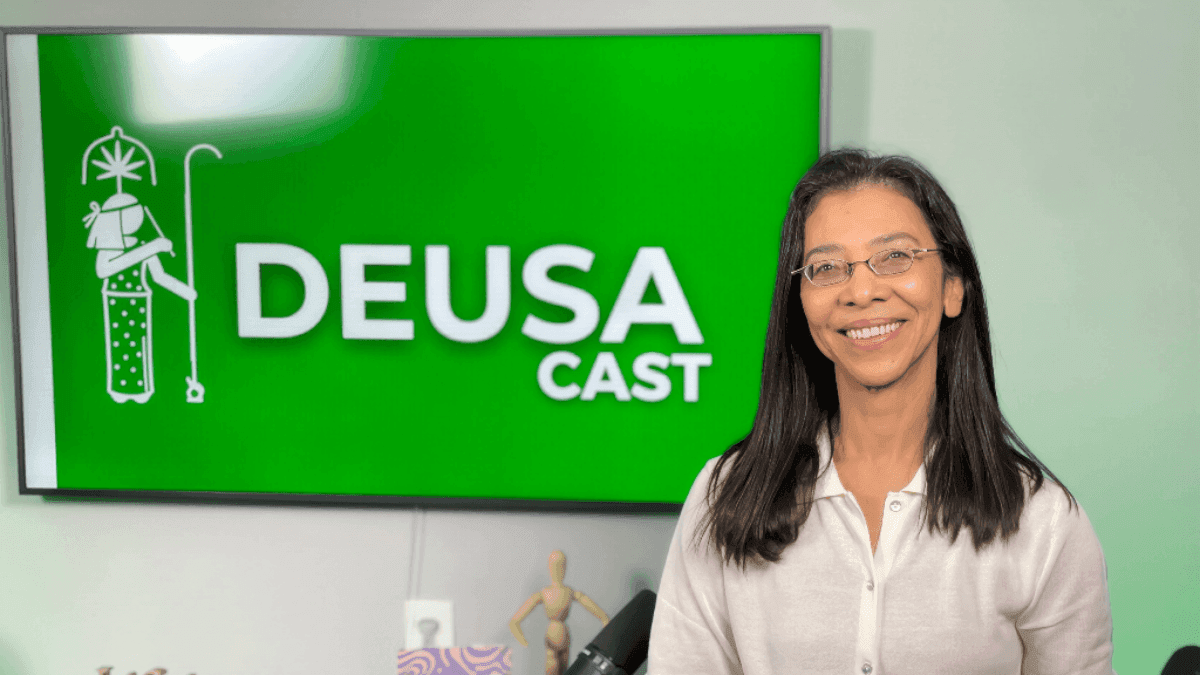“I came across a wealth of possibilities in Brazilian science,” reveals Globo Rural producer on Deusa Cast
In Deusa Cast #46, producer Luiza Silveira talks about the behind-the-scenes of the Globo Rural report on cannabis, the prejudice that still hinders the sector's progress, and the importance of addressing the issue through science
Published on 10/15/2025

“I came across a wealth of possibilities that science has today in Brazil,” says Globo producer on Deusa Cast | Photo: Sechat
Episode #46 of Deusa Cast “Is Brazil hindering the future of cannabis?”, brought together heavyweights from the sector to discuss the challenges and opportunities that the country is still missing out on by not advancing in the regulation of the plant. Among the guests, Marcelo Grecco, Jaime Ozi, journalist, psychologist, and TV producer Luiza Silveira, responsible for the latest Globo Rural report on cannabis, shared the behind-the-scenes of a production that marked a turning point in how the subject is addressed on Brazilian television.
During the conversation, Luiza talked about the impact that the special had not only on the program's audience but also within the cannabis sector itself, which saw in the report a sign of progress in demystifying the plant.
The producer emphasized that the team's main concern was to approach the subject in a scientific, non-partisan, and informative manner, reaching an audience that traditionally stays away from these discussions.
A year of production and a committed direction
According to Luiza, the production process took a whole year, from defining the agenda to filming in different regions of the country. The team followed the planting and harvesting cycle, visited associations, universities, and got to know up close the challenges faced by those trying to conduct research or work with cannabis in Brazil. “When I started listening to researchers and producers, I realized a huge wealth of possibilities. Brazilian science has incredible projects, but still needs legal and institutional support to advance,” she said.
The report, which had a predominantly female team, was conducted in a sensitive and committed manner. “The program's direction was fundamental. We worked together, thinking about how to approach the subject clearly, without stigma, and focusing on information,” Luiza highlighted, referring to the collaboration between directors Camila Marconato, Cristina Vieira, and Helen Santos.
Prejudice is still the biggest obstacle
For her, the biggest obstacle is still prejudice, which prevents the country from seeing the economic and social potential of the plant. “We can't talk about this without addressing prejudice. Only by reducing prejudice will the producer be able to see the possibilities they have in the field, and there are many, including financial ones,” she said.
The producer also recalled that there are promising ongoing research projects in the country, such as studies analyzing the use of hemp in poultry and swine farming, with results indicating improvements in animal welfare and productivity.
A turning point for the sector
Luiza celebrated the positive repercussion of the report, both among rural audiences and among professionals and activists in the cannabis sector. “I was very happy with the result. The piece was very well received and brought the subject to another level of understanding,” she stated.
The Deusa Cast episode reinforced that, although Brazil has scientific and economic potential to be a global reference in the cannabis market, it still faces cultural and ideological barriers that hinder sector development. For Luiza Silveira, informing is the first step to break through these barriers. “Misinformation and social fear keep things in a state of lethargy. We don't move forward. And this is very complicated when talking about a subject that involves science, health, and opportunity,” she concluded.
With the special aired on Globo Rural and the debate promoted by Deusa Cast, the cannabis agenda gains more and more space in traditional media, expanding the dialogue and helping the public to see the plant beyond the stigma.
Check out the episode excerpt below:








